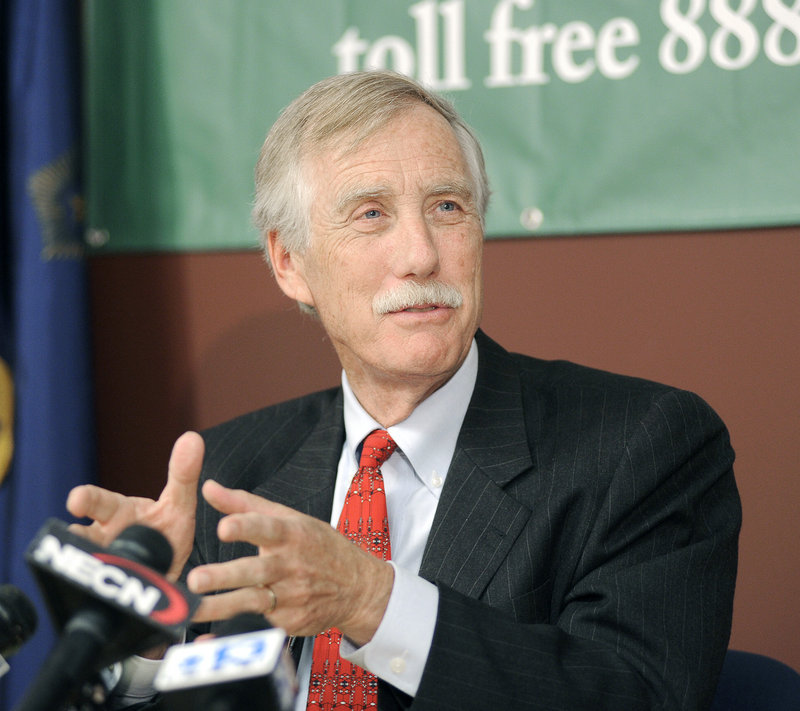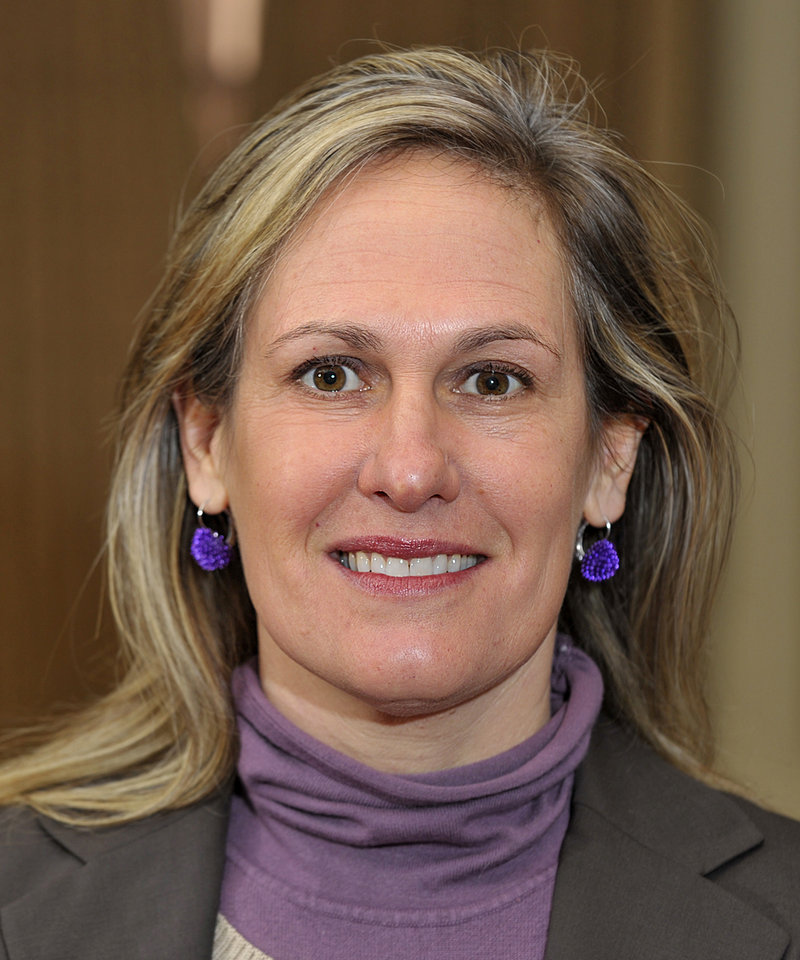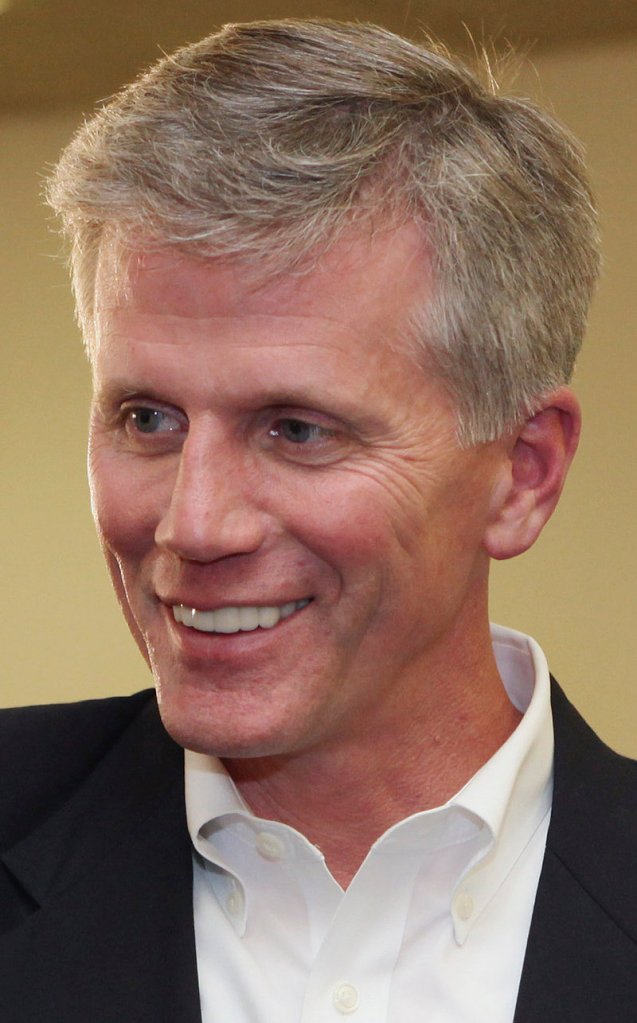U.S. Senate candidate Angus King earned about $256,000 in 2011 as a college lecturer, corporate director, legal consultant and retired governor, according to a financial profile he filed with the Senate.
King’s investments are valued at somewhere between $4.8 million and $22.5 million, and he took in investment income of $234,000 to $2 million over the roughly 17 months covered by the filing. The report only asks for a value range for investments and investment income, so those numbers are not as precise as earned income.
The 25-page report presents the most detailed public look yet at King’s wealth from Jan. 1, 2011, to May 14, 2012. He disclosed some financial information when he became Maine’s governor in 1994, although those reports had far less detail than the one required of congressional candidates.
While the report confirms that 68-year-old King is a wealthy man, it also shows that he didn’t earn that wealth putting up windmills in the Maine mountains.
King’s net income from the sale of his investments in Independence Wind appears to be just $69,509, according to the report. King sold his primary stake in the wind farm developer for $407,759, and transferred his remaining stake in March at a loss of $338,250, it says.
King’s assets and earnings include investments jointly owned with his wife, Mary Herman. The report includes additional assets and income owned individually by other family members, including investments his wife recently inherited from her mother.
The independent former governor was the only one of the three top candidates in the race to file a personal financial report with the U.S. Senate by May 15, as required. The Senate made those reports public this month, although they are not posted online and are only available from the Senate’s Office of Public Records in Washington, D.C.
Democrat Cynthia Dill, a Cape Elizabeth lawyer and state senator, and Republican Charlie Summers, Maine’s Secretary of State, were both finalizing their reports this week, more than a month after the reporting deadline, according to their campaign staffs. Both campaigns said their reports will be made available soon.
“We inadvertently missed the Senate’s financial disclosure deadline, are working to finalize the report today, and will provide a copy to the media immediately after it is finalized, either late today or early tomorrow,” Bob Mentzinger, Dill’s spokesman, said in an email.
The candidates could face a $200 fine by the U.S. Senate Select Committee on Ethics for missing the deadline.
While Dill and Summers did not file in time, at least some of their opponents in the primary campaign did comply. Republican Bruce Poliquin and Democrat Matthew Dunlap both filed reports, for example.
King’s wealth is sure to be made an issue in the campaign.
Some Republicans have already cast him as a wealthy, big-spending liberal, although conservative also have cautioned that the GOP should not criticize King, or anyone else, for having success as a businessman.
“I’m not opposed to people making money,” said Charlie Webster, chairman of the Maine Republican Party. But, Webster said, “here’s a guy that wants to clearcut mountaintops for windmills as long as the government is subsidizing it and he can make a profit.”
Webster pointed out that King once vetoed an increase in Maine’s minimum wage, something Democrats have criticized him for, too.
“Who is he going down there to represent? He obviously is not going down to represent lower income people,” he said.
While King has had a healthy income since leaving the governor’s office, he earned his fortune in 1994 when he sold Northeast Energy Management Inc., which he founded, and ran to become governor. The company developed and operated large-scale electrical energy conservation projects in Maine.
His latest business venture, Independence Wind LLC, is now earning a profit from windmills in western Maine, but King divested before he could see a significant return, his staff said. “It’s generating revenue now, but not for him,” said Kay Rand, his campaign manager.
King’s financial picture is pretty much the same as it was in 1994 when Mainers first elected him governor, she said.
“I’m sure they’ll be told over and over about his wealth, but I don’t think that matters because they’ve known about that,” Rand said. “They remember him being a good governor and they like him personally.”
Rand and Crystal Canney, King’s spokeswoman, said King has been generous with his wealth — he donated more than $178,000 to charity over the past two years — but also is known to be frugal for someone with his means. “He thinks cheaply,” Rand said.
Among the details in the report, King:
•earned $39,852 over the reporting period in pension income from the Maine Public Employees Retirement System.
•earned $49,456 during the reporting period lecturing at Bowdoin College.
•earned $56,960 during the reporting period as a consultant with Bernstein Shur Sawyer & Neslon, a large law firm.
•earned $4,000 in book royalties.
•is a paid director or adviser for Hancock Lumber Co. Inc., Lee Management Co. and Woodard & Curran.
•owns a two-bedroom vacation rental unit in St. Thomas valued at $250,000 to $500,000. He earned at least $5,000 on rentals during the period covered by the report. The unit, which was built with materials from Hancock Lumber and other Maine suppliers, is part of a complex owned by a number of Maine families, Rand said.
Staff Writer John Richardson can be contacted at 791-6324 or at:
jrichardson@pressherald.com
Send questions/comments to the editors.





Comments are no longer available on this story